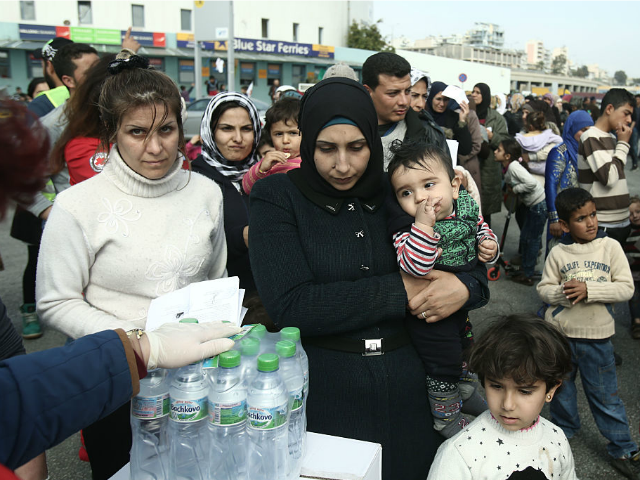Migrant families from camps in Greece and Turkey say they feel “cheated” to have been resettled in Lithuania, where benefits are lower than in Germany. One family is now looking into filing a complaint with the United Nations (UN).
Despite families’ initially expressing gratitude to the Baltic state which offered them asylum, many have fled to richer countries, blasting asylum agencies for “deceiving” them by giving the impression that Lithuania is a “Class A” nation similar to Sweden and Germany.
Of 100 migrants to have been recently resettled in the Baltic nation, at least two families have left for richer European countries. The main allowance per person is €700 per month in Germany whilst in Lithuania, it’s €200.
When the Iraqi Yasser Al-Any family arrived in Lithuania, the father said: “I [am grateful to] any state which protects me from the the threats in my country.” While his words were regularly reprinted by the media, the Iraqi and his family disappeared from the country after a few months.
The Yasser Al-Any family are now in Sweden and, having left Lithuania for more than a month, they no longer qualify to receive benefits in the country that granted them asylum.
“It does not matter which country… Whether rich or poor, a man just wants to live in security”, Syrian migrant Mohamed Ali Abdul told a television crew upon his arrival at the airport in Lithuania a few weeks ago.
However, it turns out that for Abdul it’s vital a country’s taxpayers have deep pockets, as he and his family refused to sign the contract with the migrant centre upon learning how much money they could expect to get. The new arrivals then began pleading to be moved to Canada.
Abdul said: “When I was told that Lithuania also accepts refugees, my main question was whether all the law will be applied as in Germany, as in Sweden, as in other European Union countries.
“I was told that yes, Lithuania is among those countries which are called Class A countries. But when we arrived here and the centre’s Deputy Director explained to us about the integration process and what the benefits will be paid, I realised that I found myself in the wrong place.”
Abdul, a 36-year-old tailor who had traveled to Europe with his 29-year-old housewife and their three children, insisted that he couldn’t stay in Lithuania.
“Even though I don’t know how Lithuania is for healthcare services I can already see that a sick person like myself may not be able to work, so I won’t be able to keep my family in this country,” Mr. Ali Abdul told LNK’s Knowledge show.
News website Delfi reported that another migrant who arrived recently is now hoping, with the help of lawyers, to file a complaint with the UN for resettling his family in Lithuania. A few weeks ago he had told LNK, “I can work if there is a job offer, it doesn’t matter what kind of work”.
Commenting on the situation, Social Security and Labour Deputy Minister Algirdas Šešelgis said: “It’s good that local lawyers are helping [migrants who don’t want to stay in Syria] through an interpreter but [migrants] now live in a safe place so they are able to assess the situation, look at their options and decide the future of their lives. We don’t say Lithuania is a prison and that [other options] are closed.”
In neighbouring Latvia, of 45 migrants resettled so far more than half have gone to live in Germany. LNK Knowledge reported that they claimed Latvia violated their rights by showing migrants on television with their hair uncovered.

COMMENTS
Please let us know if you're having issues with commenting.